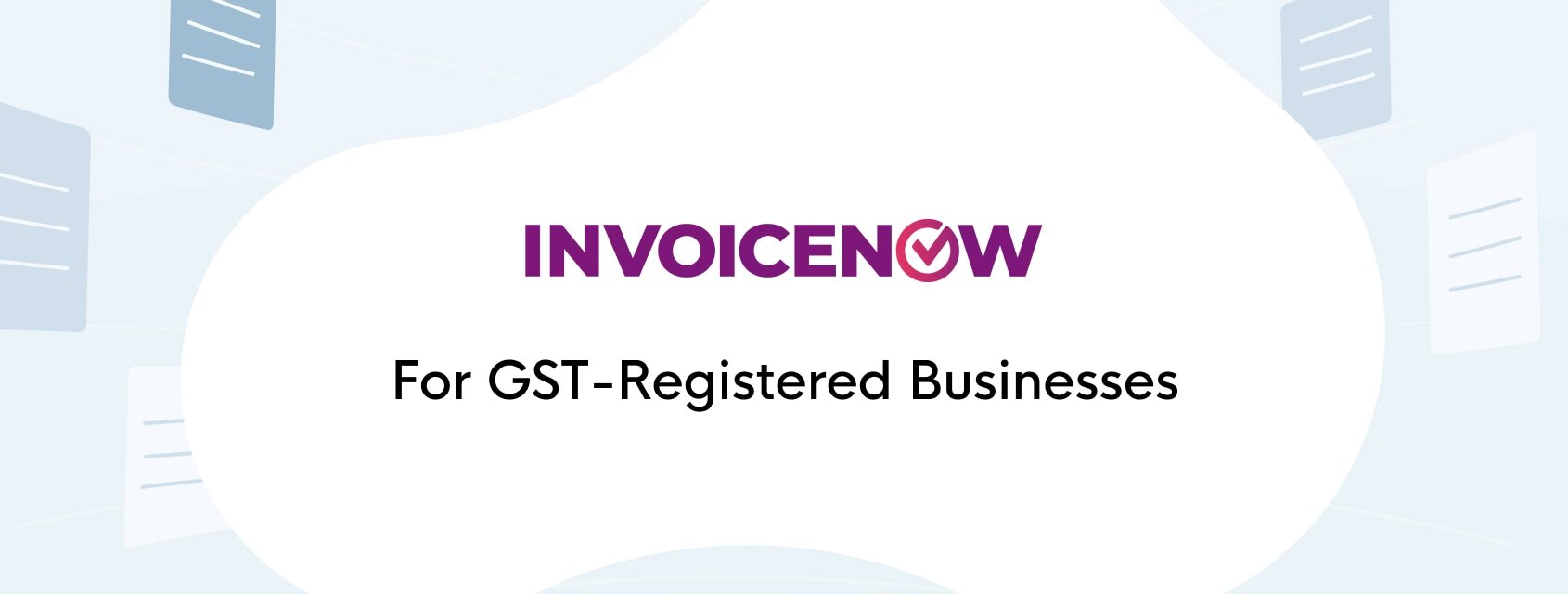New GST InvoiceNow Requirement for GST-registered businesses
New GST InvoiceNow Requirement for GST-registered businesses

InvoiceNow is the nationwide e-invoicing network that enables companies of all sizes to process invoices in a more efficient manner, reducing business costs and shortening payment cycles. InvoiceNow operates on the open standard Peppol framework, which directly transmits e-invoices in a standard digital format across different finance systems. It was introduced by the Infocomm Media Development Authority (IMDA) in 2019.
To support the nationwide InvoiceNow initiative, and as part of the ongoing transformation efforts by the Inland Revenue Authority of Singapore (IRAS) to digitalise with the wider ecosystem and integrate tax into taxpayers’ accounting and payroll systems, GST-registered businesses will be required to use InvoiceNow solutions to send invoice data to IRAS for tax administration.
Phased adoption of GST InvoiceNow Requirement
To allow businesses sufficient time to prepare, the GST InvoiceNow Requirement will be implemented progressively as follows:
- From 1 November 2025, for newly incorporated companies that register for GST voluntarily.
- From 1 April 2026, for all new voluntary GST-registrants, regardless of incorporation date or business constitution.
A soft launch will commence from 1 May 2025 for early adopters1 that wish to transmit invoice data to IRAS using InvoiceNow solutions.
1 Includes existing GST-registered businesses as well as any other businesses applying for GST registration on/after 1 May 2025.
There are plans to progressively implement the GST InvoiceNow Requirement for the remaining GST-registered businesses. IRAS will continue to consult industry partners and carefully review the feedback received before announcing further details. Although the initial phases primarily affect new voluntary registrants, all existing GST-registered businesses should take note of these dates should they decide to set up new businesses or companies and apply for voluntary GST registration.
Benefits of adopting InvoiceNow solutions
The transmission of invoice data to IRAS will be done seamlessly through Access Point providers (AP) via Application Programming Interface (API) technology. By transmitting invoice data directly to IRAS via the InvoiceNow network, GST-registered businesses can benefit from reduced compliance efforts when preparing data for submission to IRAS.
With IRAS’ better risk analysis capabilities, fewer businesses would potentially be selected for GST audits. Those selected for audits may also expect shorter audits and faster resolution of the audit issues. Businesses claiming GST refunds may receive refunds earlier, if assessed to be of lower risk.
Businesses can also use features within InvoiceNow solutions, like receiving alerts for wrongful GST charges from non-GST registered suppliers.
Preparing early to adopt GST InvoiceNow solutions
Businesses are encouraged to come onboard early and plan ahead for the adoption of InvoiceNow solutions or make changes to their in-house accounting systems to be compatible with GST InvoiceNow Requirement. There are four steps:
From now
Step 1: Ensure your solution is InvoiceNow-enabled
- For businesses with existing accounting or finance solutions, or businesses that are planning to purchase one, check whether your preferred solution is listed on IMDA’s pre-approved e-invoicing solution provider list. For large enterprises using your own in-house solutions, get in touch with an IMDA pre-approved Access Point Provider (AP) to help you to connect to the InvoiceNow network.
Step 2: Register for InvoiceNow and obtain Peppol ID
- Approach your solution provider and/or AP to register your business in the SG Peppol Directory with your UEN and obtain your Peppol ID.
From May 2025
Step 3: Ensure your InvoiceNow solution is connected to IRAS’ System via Application Programming Interface (API) technology
- Contact your solution provider and/or AP to ensure that your InvoiceNow solution is connected to IRAS via API.
Step 4: Activate feature to transmit invoice data to IRAS
- Work with your solution provider and/or AP to enable the feature for you to transmit invoice data to IRAS.
- Test your system implementation and ensure that you are able to transmit invoices to IRAS successfully.
For more information on the 4 steps to come onboard early, please click IRAS’ website.

